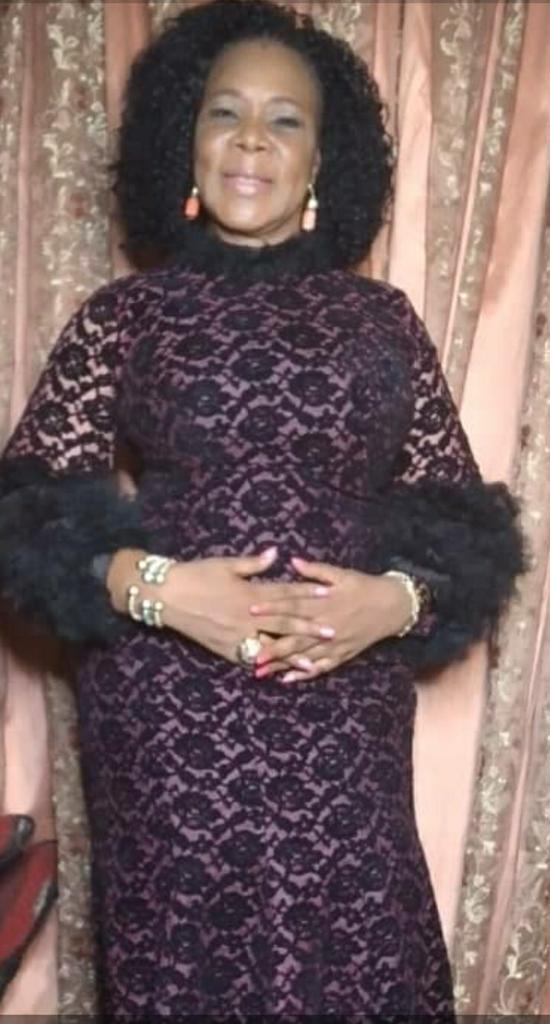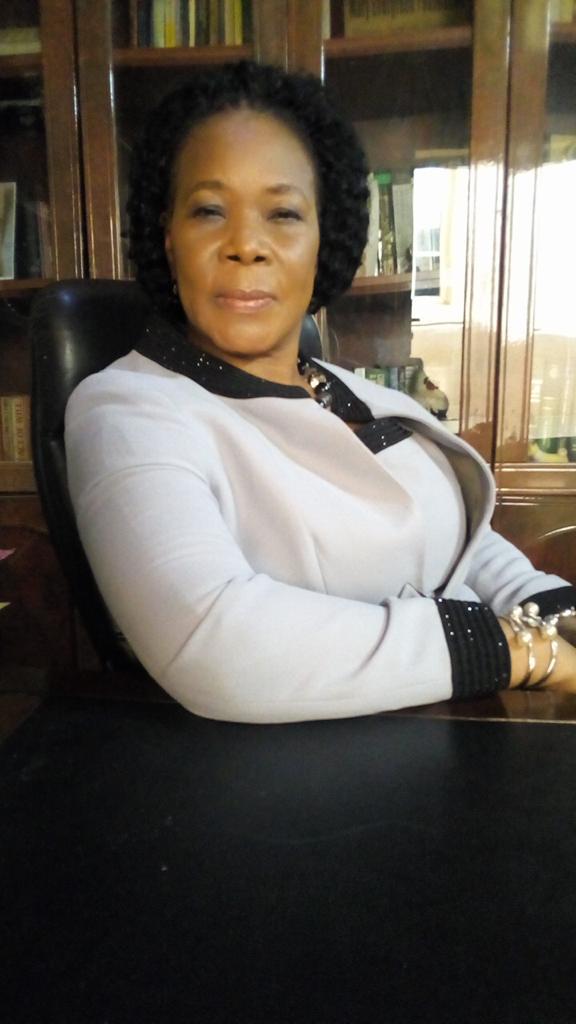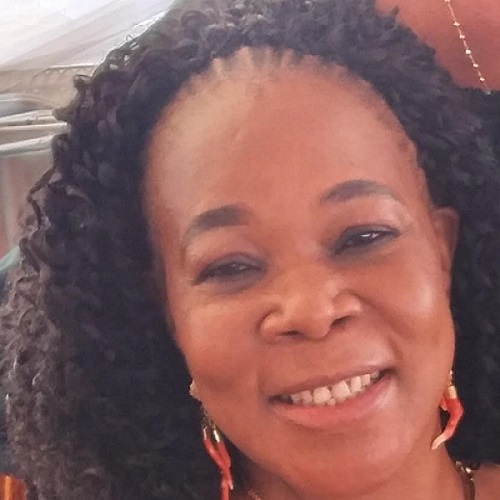By Lillian Okenwa
A former Chair of the Crimes against Women Sub-Committee of the International Bar Association (IBA). Three time officer of the Access to Justice and Legal Aid Committee of the IBA. Lawyer, Mediator, Arbitrator, Negotiator and Counsellor., Rosemary Chikwendu is Founding Partner of Chikwendu & Chikwendu & Co Legal Practitioners, Mediators & Arbitrators, Chief Executive Officer of My Take Initiative a Human rights based NGO, Mary Evergreen Foundation & Peace Building Systems Development Consult.
She is Alternate Chairperson of the Dispute Resolution Committee of Nigerian Bar Association (NBA) Abuja Branch, a Fellow of the Institute of Chartered Mediators and Conciliators Nigeria (ICMC), a certified Mediation Trainer of the Institute where she has just been re-elected Chair of the Abuja Branch. Amongst many other caps she wears, Rosemary Chikwendu former Eastern Nigeria Coordinator, Women in Law and Development in Africa Nigeria, member UN NGO Commission on the Status of Women Committee is a Life Member, International Federation of Women Lawyers (FIDA). She spoke with Lillian Okenwa.
How would you assess the evolution of legal practice between when you were called to the bar and present?
The only thing that is constant in life is change. I will say that Law practice has evolved over the years in Nigeria. The internet and computers have totally changed the dynamics of how everything is done, and law practice is not an exception. Law reports, precedents and all that is needed are now on the internet. All you need is to subscribe to LegalPedia and the rest of them.

This was not so 30 something years ago. Then you must visit a library, read precedent books, search the law reports with the correct citation of a case, read the whole case, before you can deduce what it is all about.
Again law practice in Nigeria has been diversified. Lawyers are now sharpening their skills and concentrating in their area of specialization. Before, if you are not in litigation, you are regarded as unserious. But today a lot of big law firms do very little or no litigation.
Why did you study law?
Law found me. I did not find law. In our time, you study one of the big names that you have the capacity to, and for an arts student like me, law was the natural choice.
Having carved a niche in the ADR sector, could you tell us how Arbitration and Mediation have altered the legal landscape in Nigeria?
Arbitration and Mediation are both part of the Alternative Dispute Resolution (ADR) mechanisms. ADR is any other alternative way of settling disputes other than litigation. While we are working hard at making people imbibe ADR, litigation remains the major means of settling disputes in Nigeria. It is also important to note that there are matters that can only be resolved via litigation.
I will say that the effect of ADR in dispute resolution in Nigeria is yet to be wildly felt. It behoves on us ADR practitioners to spread the message to others. When people know the advantages, I am sure that they will prefer the use of ADR. Some of the advantages they have over litigation, particularly Mediation is that it is a voluntary process, it saves time, it is cheap, it maintains relationships, it is party driven and is hinged on the principle of self-determination. As a result, parties to a dispute are more willing to commit to the outcome.
Though Arbitration is a type of ADR, it appears to have some similarities with Litigation.
Litigation and Arbitration are really closely related but for a few differences.
They both involve adjudication and a third party in both determines a case based on evidence, legal reasoning and arguments. This is to say that in litigation and Arbitration, you go through the technicalities of tendering evidence and proving your case and just as you are subject to the rules of the courts in litigation, you are subject to the rules of the seat of the arbitration.
Arbitration has its advantages though. They include that parties get to choose the Arbitrator/s, the seat of the arbitration, it is a private process, and it is a quicker process.
While the judgement of a court from litigation is appealable, an arbitral award is not.
Tell us about some of the courses offered in ICMC.
ICMC offers a lot of courses. Apart from the basic Certification & Accreditation courses, the Train the Trainer and the Fellowship courses, it offers other specialialezed causes in different areas, such as Family Mediation, Workplace Mediation, Online Dispute Resolution, Psychology of Mediation, Mediation Advocacy and so on.
Can lawyers without training in Arbitration represent clients in an arbitral proceeding?
In the first place, who will leave trained arbitrators to seek for you? In the past, retired Judges were the main set of people used as arbitrators, but now the dynamics are changing. With a lot of trained arbitrators, some who are Senior Advocates of Nigeria and Retired Judges, where will the arbitration work come to the lawyer from?
Do you suppose that a time is coming when Arbitration and Mediation will replace litigation?
The day will never come. Arbitration and Mediation can never replace litigation. Litigation will always remain the principal means of settling disputes.
Mind you Arbitration deals mainly with trade union and commercial disputes and Mediation, civil disputes. Criminal cases and Matrimonial cases will always go to the courts for litigation.
Speaking about Gender Based Violence (GBV), there is an increase despite the publicity given the subject by the social media.
I run a human rights based Non-Governmental Organisation (NGO), My Take Initiative. Our main focus is defending the human rights and Creating Safe Spaces for Women Children and the Vulnerable. Our major focus is on educating people in this demography on their rights, the laws that are available to protect their rights and creating safe spaces for them to checkmate these rights abuses.

Indeed gender based violence and indeed all forms of violence have assumed an astronomical height. When Violence Against persons (prohibition) (VAPP) Act 2015 came out and we all saw how the definition of rape was broadened, genital female mutilation and other forms of violence addressed and punishments for these increased, one would have thought that there will be a decrease, in the number of incidents, but no. The opposite have turned out to be the case. A lot of sensitization is needed to make people aware of their rights and remedies available to them.
What could be the reason for the spike?
There is no explanation for any form of abuse. While you cannot control people’s behaviour, every human being, can and must control their reaction.

How do you juggle your frenetic schedule?
It takes planning and people to have a balanced life. Once the different facets of your life are planned and compartmentalized, you engage like-minded people to assist in each facet, things will be made easy and everybody will be happy.
Has there been a time a time your leadership journey when you became overwhelmed?
Overwhelmed is not really the right word. I will prefer to use the word challenging. I believe that being part of my extended family Sister Association has been most challenging, due to the dynamics. As you know it takes committed and understanding followers to emerge as a good leader. I will always say that if you can succeed in family politics, then you can succeed in any level of politics.
What motivates you? How do you keep on in the face of various challenges?
I will like to say that my biggest motivation is my faith. Hebrew 11:1 – “Faith is the substance of things hoped for, the evidence of things not seen.” Mathew 19:26 – “With God all things are possible.”
What advice do you have for young lawyers?
My advice to them is to identify their area of passion early and focus on it.

If you didn’t study law, what would it have been?
I am generally good with my hands, and my eyes take in a lot of details. So I will probably be doing something creative with my hands, while brokering peace in between.





